Speaking to "anxious app developers" at the Inside Social Apps conference in San Francisco on Tuesday, Android platform manager Eric Chu said Google is actually "not happy" about the limited number of apps actually being purchased, according to a report by Forbes blogger Oliver Chiang.
The Plan to fix Android app sales
Chiang said Chu outlined a roadmap for Android in 2011 that the company hopes will help it drive new app sales more comparable to the outstanding results of Apple's blockbuster iOS App Store, but noted the plan is short on specifics.
"Chu used the phrase 'stay tuned' enough to make a drinking game out of it," Chiang wrote.
The overall plan includes creating an in-app payments system like the one Apple created last year as part of iOS 4, enabling developers to sell episodic content or related virtual goods.
Google also hopes to negotiate carrier billing agreements with scores of regional mobile providers, allowing users to buy apps and bill them to their mobile account. Apple doesn't need to do this because the iOS App Store in iTunes can bill users directly in most countries, far more than Google's Android Marketplace.
Wanted: app curator
Chu also wants to clean up Android Market, saying there is a team tasked with "weeding out apps that violate Android Market’s terms of service," an indication that Google's free-for-all market design is recognized to have serious drawbacks.
Many of the tens of thousands of apps in Android Market are just ringtones, wallpapers or simplistic "apps" designed just to fill space, a situation that drowns out legitimate developer's work under tons of copyright infringing junkware.
Android Market has also distributed distractive malware, a problem Google can't catch in advance because it isn't curating its catalog, and instead waiting for fires to erupt so it can put them out.
Migration toward HTML apps
The company also hopes to create algorithms to help promote the best apps, making it easier for users to discover worthwhile programs. Chu also indicated that Google planned to turn users' Address Books into a "social graph" that third party apps could tap into.
Without elaborating, Chu also commented that Google was "betting on" HTML5 as a way to create apps. Google employees have previously made it clear that the company sees the Java-like core VM of Android as a stepping stone to a future where apps are created in HTML, as soon as web tools can support sophisticated apps.
That's something that undermines rather than builds confidence in Google's commitment to Android in general. Why should Google bother to create an app store if its future is aimed at web pages? In Google's case, either can be monetized with ads, so there's no reason to build the current Android platform to be anything more than a temporary placeholder.
Chu's comments came just days after Apple celebrated its 10 billionth iOS app download and is promoting an iPad-optimized library of over 60,000 apps.
 Daniel Eran Dilger
Daniel Eran Dilger

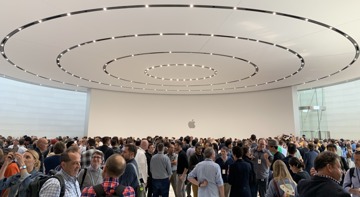









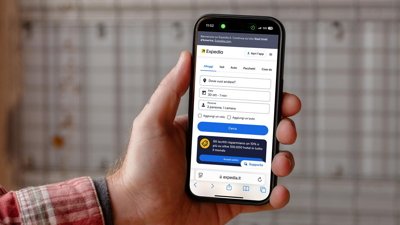
 David Schloss
David Schloss
 Christine McKee
Christine McKee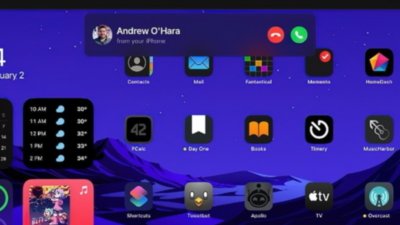
 Amber Neely
Amber Neely
 Malcolm Owen
Malcolm Owen
 Andrew O'Hara
Andrew O'Hara

 William Gallagher
William Gallagher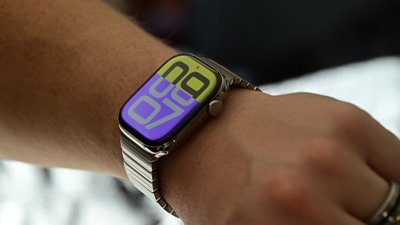
 Oliver Haslam
Oliver Haslam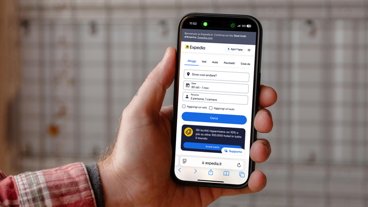




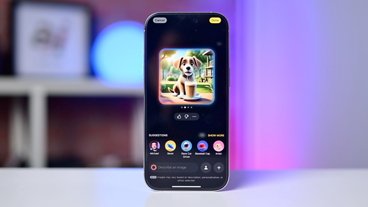
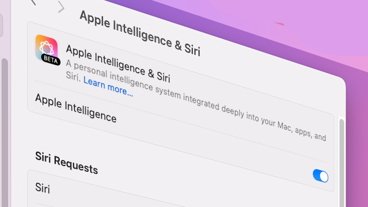


78 Comments
Why is it a surprise?? I've always said that Android got as much market share as it did because Google is giving away the OS and thus many people got it by default - people who are not exactly predisposed to spend. iPhone users, just by their virtue of selecting an iPhone, are more to inclined to spend on apps for the phone.
Sounds like Google is going to try and emulate Apple's iOS store. I guess Android is too open for its' own good. Without controls chaos is to be expected.
That HTML5 comment was not smart. Way to undermine your (current) developers dude.
People always worry that someone will come along and copy Apple and eat their lunch. But like someone once said (Guy Kawasaki?), the same reason they don't invent the stuff themselves in the first place also means they don't know what to copy. In this case they thought curation was an inessential feature and so did not copy it, but it looks like they were wrong.
Wanted: app curator
Chu also wants to clean up Android Market, saying there is a team tasked with "weeding out apps that violate Android Market?s terms of service," an indication that Google's free-for-all market design is recognized to have serious drawbacks.
Many of the tens of thousands of apps in Android Market are just ringtones, wallpapers or simplistic "apps" designed just to fill space, a situation that drowns out legitimate developer's work under tons of copyright infringing junkware.
Android Market has also distributed distractive malware, a problem Google can't catch in advance because it isn't curating its catalog, and instead waiting for fires to erupt so it can put them out.
I always considered the cesspool called Marketplace to be the wild-west of apps. It's a place where anarchy rules and no one is watching the store.
With the fragmentation problems Android is having (yes, it is real), the malware issues going on, the lack of any reliable payment system for developers, it is no wonder at all that the real players are not porting their apps here. The hardcore phandroids think it's the perfect model of choice for consumers, when the consumers in general look at it as a mess and something only for nerds. I've used Android. Had Apple never been in the game, it obviously would be the OS to use. However, it's a shame to see how sloppy and poorly implemented this system/ecosystem has become.
Motorola is already making it worse with the locking-down of their handsets to prevent OS upgrades, further causing a rift in OS fragmentations. The handset makers have ZERO incentive to upgrade the OS devices due to their business model. They make money on making handsets and do not want their phones to have the ability to allow users to keep them longer.
I think Google will preach the mantra of Android openness until Larry Page is blue in the face, but in the end the handset makers and the wireless companies that sell the hardware will do what is best for them, and not for Google.
Android will continue to evolve. Unfortunately, it will be considered the Windows of the mobile realm, while Apple's iOS will continue to be regarded as the gold-standard.
I'm suprised Google have that much of a focus on a single category of app... How are the other categories doing?